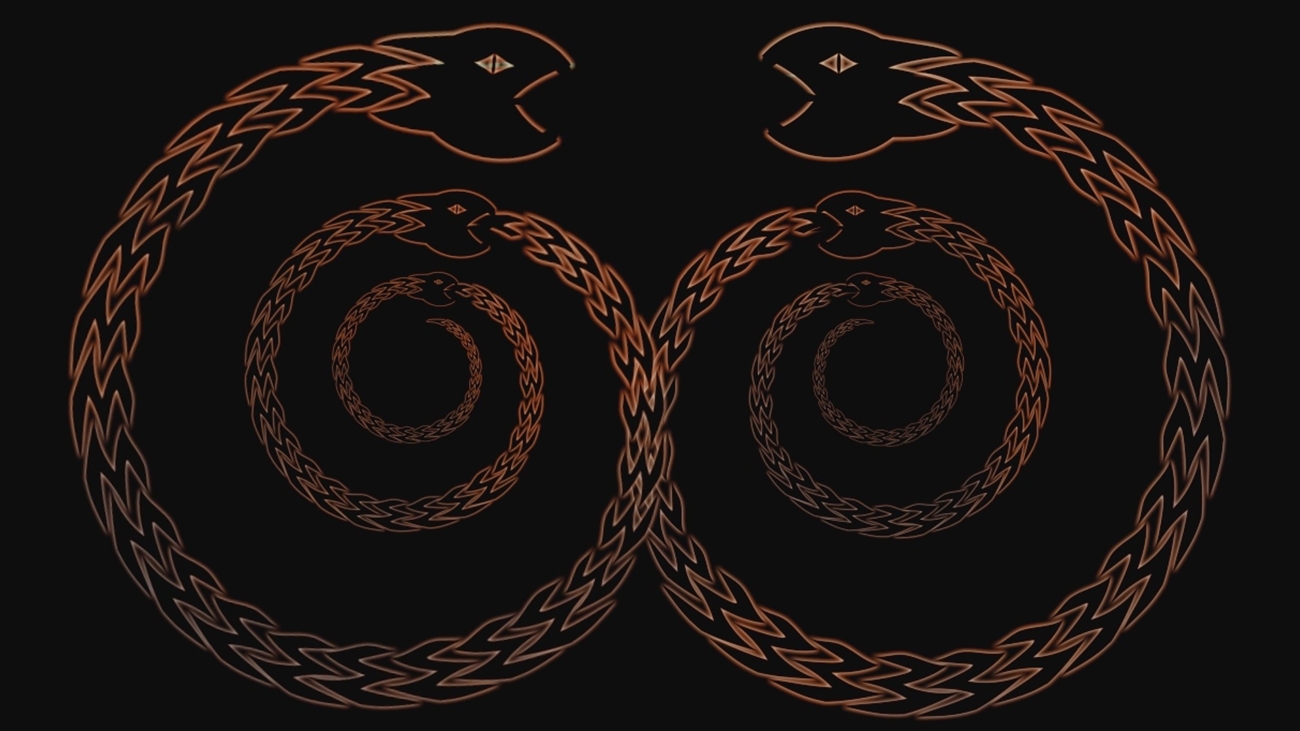Someone recently showed me a flyer for a class someone gave on the subject of the Holy Guardian Angel. It says that experiencing Knowledge and Conversation of one’s Holy Guardian Angel is “as easy as falling hopelessly in love with God then realising God is, has been, and will always be YOU.”
I think a lot of people who read things like this feel reassured for a number of reasons. Love carries strong, positive connotations, both in a religious and a secular context. Self-love and self-care both carry strong, positive associations. Language like this reaffirms the idea we have that you cannot give or receive love to another before you’ve learned to love yourself.
I think there’s also something seemingly freeing in the idea that the relationship with God is something so individual and so personal. As unique and as special as each human being is, so is God and the experience of God. It takes it safely and far out of the reach of religious authorities. It frees the religious experience from entrapment in dogma and coercion. And it means that, at the end of the day, the religious experience is in a certain sense completely within your control (under a certain nuanced definition of “your”).
So I do think I understand the appeal of language like this. I can also understand why people would feel tempted to pay $45 to attend a class on this subject.
That being said, my reaction to it is that it’s reductionistic.
I feel like this approach takes everything that spiritual or religious experience is or could be and reduces it to a particular experience of self-relation or self-care. For example, if ecstasy, rapture, and love take us out and away from ourselves into another, it seems to me as though the structure of self-relation and self-care tends to throw us back on to ourselves and our own parochial concerns.
The response to what I just said is to say that Self (capital S) is not the same thing as self. Reducing everything to small-s self is arguably parochial and reductionistic. But what’s meant here is capital-S Self, which is much larger. In fact it could be considered the universe or the total of all that exists.
I do think I understand that distinction. I see that as problematic as well, though.
If I understand the idea correctly, we engage with God as a distinct being. That is who we fall “hopelessly in love with”. That part seems fine. But then I’m not sure what’s implied by the idea that this being we have fallen in love with “is, has been, and will always be” ourselves.
I don’t know about you, but when I stop and sit with that idea for a second, the first thing that jumps to mind is the myth of Narcissus. He fell in love with his own reflection in a pool to such an intense degree that he remained fixed to it—until finally he pined away, killed himself, or was preyed upon by beasts. It’s an individual transfixed on a counterfeit to such an extreme extent that he’s unaware of the world around him—to a dangerous and finally fatal degree.
I’m also suspicious of an idea of love that is so pragmatic and instrumental. I go out toward the beloved with love, not for the sake of the beloved, but merely as an intermediate step on the way toward a deeper self-understanding.
Or alternatively, if you want to describe it in holistic metaphysical terms, it is the universe or God coming to self-clarification in and through our individual consciousnesses.
From my perspective, what’s missing from this view or framework is the possibility of genuine generosity or genuine giving: a kind of giving which is not an intermediate stage on the way to getting something for myself (or God getting something for himself) but rather done simply out of an overflowing of love.
Where’s the idea from the Book of the Law that Nuit gives unimaginable joys on earth but demands nothing in sacrifice? Nuit’s love is completely unconditional. It’s not the middle step in a process of self-clarification or self-concern. There is no self-return for Nuit, nor any need. She’s incomprehensible. It seems to me all of that agape is getting lost under an overemphasis on the erotics of Hadit: the core of a star incarnating in order to learn about itself and its relations with other stars.
Basically the entire experience of God is being reduced to or indexed to a particular kind of rationality. “I’m doing X in order to achieve Y.” Compare that with the experience where you really are “hopelessly in love” with someone. Imagine the terror and exhilaration of self-abandonment, of leaping out, of feeling the bottom fall out of you, only to fall into the embrace of an actual other being.
Now imagine the other being that caught you is actually you. There was no risk involved at any point in the process. It’s just a case of the right hand passing something to the left. Where’s the sexiness in that?
Also, where’s the generosity? The right hand can’t give a gift to the left hand. The logic of self-care just cannot capture the full, actual experience of generosity or love.
And that’s the problem: it’s an intellectualization of an experience which really can be transformative of the self, but having certain concepts or preconceptions or expectations can actually make the experience less likely to occur. You’ll miss out on the real thing because you were searching for a counterfeit.
